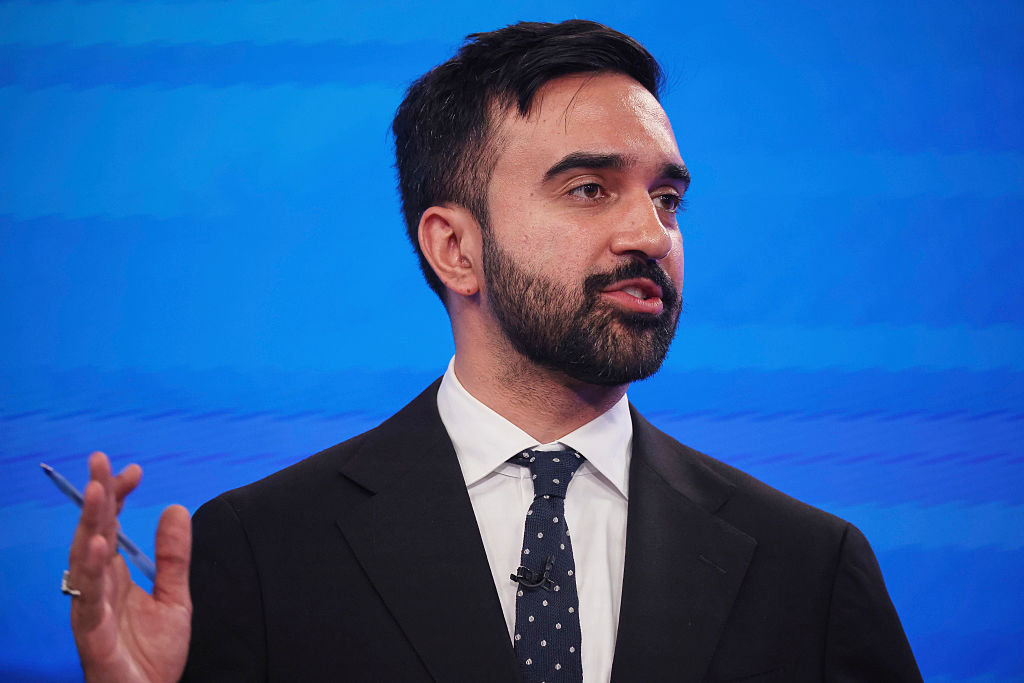McCain Says Obama Would Turn IRS Into Welfare Agency
Obama Would Turn IRS Into Welfare Agency Says McCain
John McCain is pouncing on Barack Obama’s call for shifting more wealth from richer Americans to poorer ones, likening it to socialism. His remarks win applause at campaign events. But they ignore the nation’s long tradition of redistributing huge amounts of wealth through tax-and-spending policies.
Placing a heavier burden on the wealthy has been a cornerstone of the federal income tax since its inception in 1913. Under its “progressive” formula, in which the wealthy pay higher tax rates, the richest 5 percent of Americans now pay well over half of all federal income taxes.
Forty percent of Americans pay no federal income tax at all, although it is the government’s largest revenue source. Meanwhile, they benefit from various social programs aimed at low-income households, another feature of a system that redistributes money.
Conservatives, citing such statistics, say the country needs no more top-to-bottom shifts of wealth.
McCain, the Republican presidential nominee, has hammered the issue since Obama, talking to an Ohio plumber, said he would raise taxes on the wealthy and cut them for lower-wage workers, adding: “I think when you spread the wealth around, it’s good for everybody.”
Many Americans think that sounds “a lot like socialism,” McCain said in a radio address Saturday. “Barack Obama’s tax plan would convert the IRS into a giant welfare agency,” he said, “redistributing massive amounts of wealth at the direction of politicians in Washington.”
McCain accused Obama of “class warfare.” But McCain is the perpetrator, argue Democrats, who contend he is trying to fuel middle-class resentment toward poorer people with inflammatory words like “socialism” and phrases reminiscent of Ronald Reagan’s attacks on “welfare queens.”
In fact, Obama supporters note, the gap between rich and poor Americans has grown markedly in recent years as middle-class wages remained largely stagnant while corporate profits and high-earners’ salaries soared. The nation’s income inequality now ranks among the world’s largest, reports show. The richest 10 percent earn an average of $93,000 a year; the poorest 10 percent make $5,800 on average.
Various economic and regulatory factors have fed that gap. But tax policies play a role, too, because some major revenue sources are far less favorable to low-income people than the income tax is.
For most Americans, the biggest tax burden is the payroll tax that funds Social Security and Medicare. The tax rates are the same for everyone, and the Social Security levy does not apply to incomes above $102,000, a boon to the wealthy.
Moreover, Social Security benefits go to rich and poor retirees alike. That means low-income workers’ payroll taxes are partly shifted to wealthier people, a reverse of the income tax’s topdown construct.
Federal excise taxes on products including gasoline and cigarettes are more regressive still, as are sales taxes levied by many states.
Despite the nation’s income disparity, McCain sees Obama’s exchange with “Joe the Plumber” as a means to appeal to anyone who resents paying taxes to subsidize less wealthy people. His running mate, Alaska Gov. Sarah Palin, criticized “Barack the wealth-spreader” in a campaign speech Tuesday in Reno, Nev.
Obama responded while campaigning in Florida. He said McCain, like President Bush, wants to “give more and more to those with the most, and hope prosperity trickles down to everyone else.” He said McCain has accused him of being “more concerned with who gets your piece of the pie than with growing the pie.”
After eight years of “Bush-McCain economics,” Obama said, “the pie is now shrinking.”
Obama has proposed higher taxes on the wealthy, and tax cuts for most other households. He would end the Bush administration’s tax cuts for people making more than $250,000 a year, he says. He also would impose a new Social Security payroll tax on incomes above $250,000 a year. Currently, all annual income up to $102,000 is taxed at 12.4 percent for Social Security, with employers and workers splitting the cost evenly.
As for the claim that Obama might turn the Internal Revenue Service into a “giant welfare agency,” liberal groups note that the number of Americans on welfare fell by more than 60 percent after a 1996 overhaul of the program approved by President Clinton.
For several years, a strong economy and social safety net programs helped many families avoid poverty. However, the liberal Center for Budget and Policy Priorities says the recent economic downturn “has coincided with a sharp increase in food prices, which has exacerbated hardship for many low-income families who also face high gas prices (and will face high home heating bills this fall and winter).”
The group’s chief economist, Chad Stone, says the degree to which U.S. tax policies favor the poor over the wealthy “should not be a concern to people.”
“We still have too much poverty,” he said. “And if it were not for the progressive nature of our tax system, it would be much worse.”















